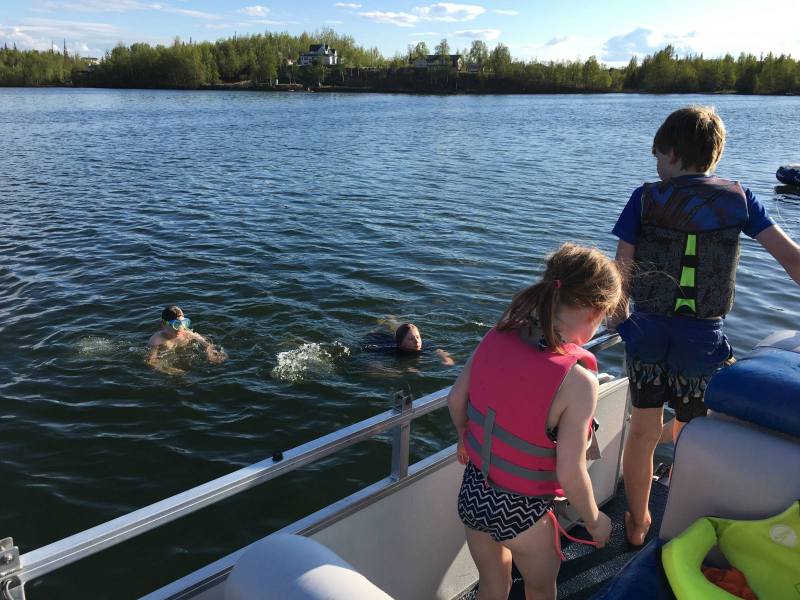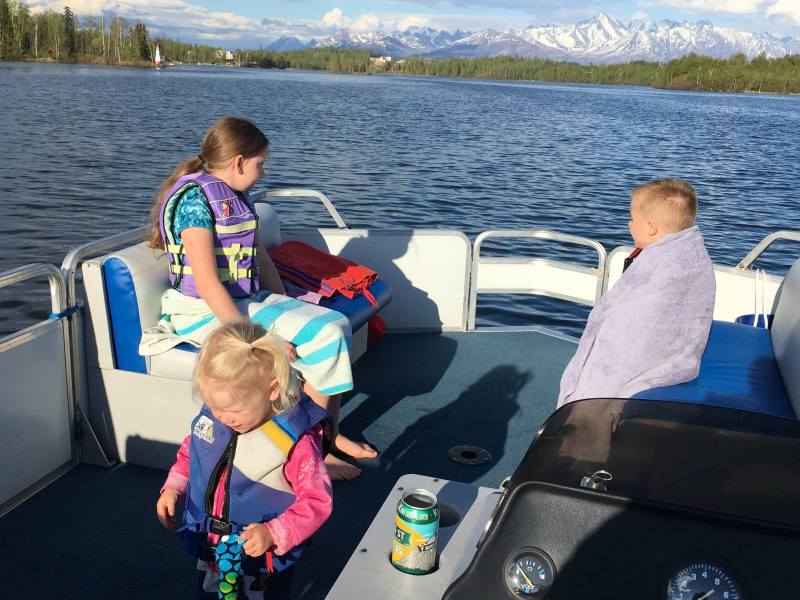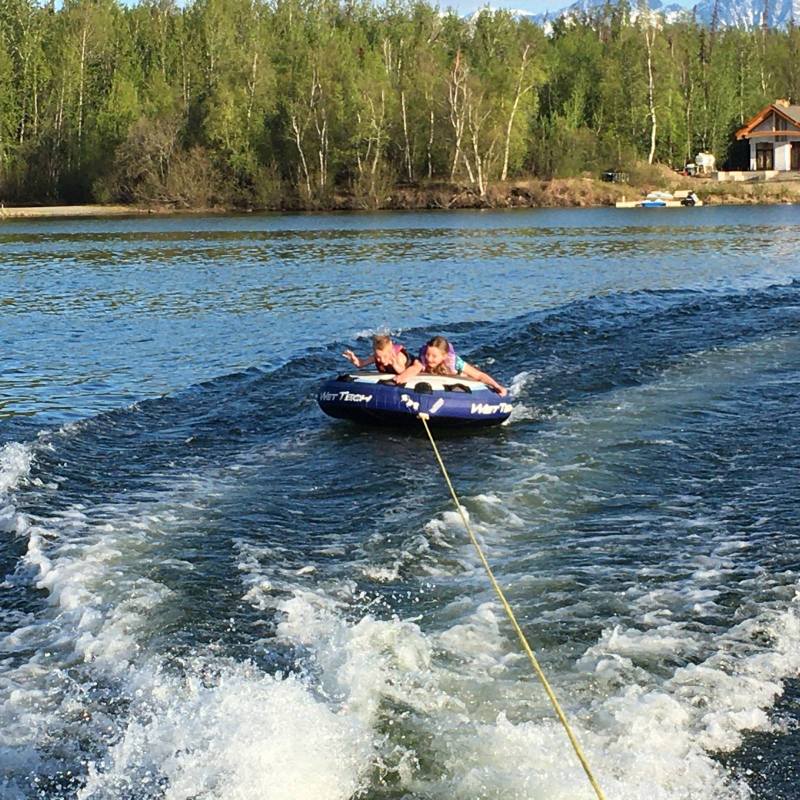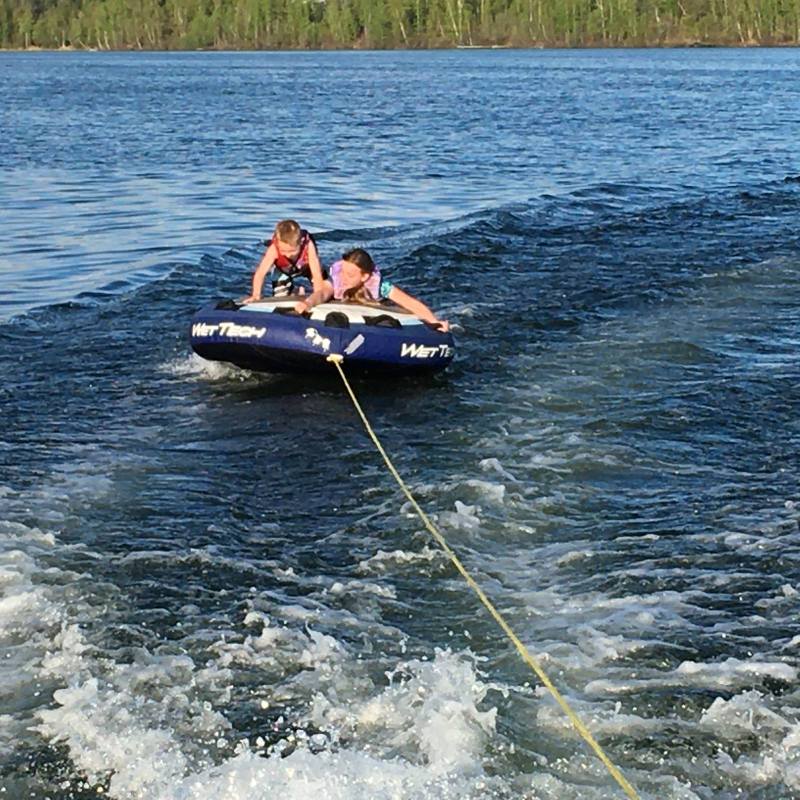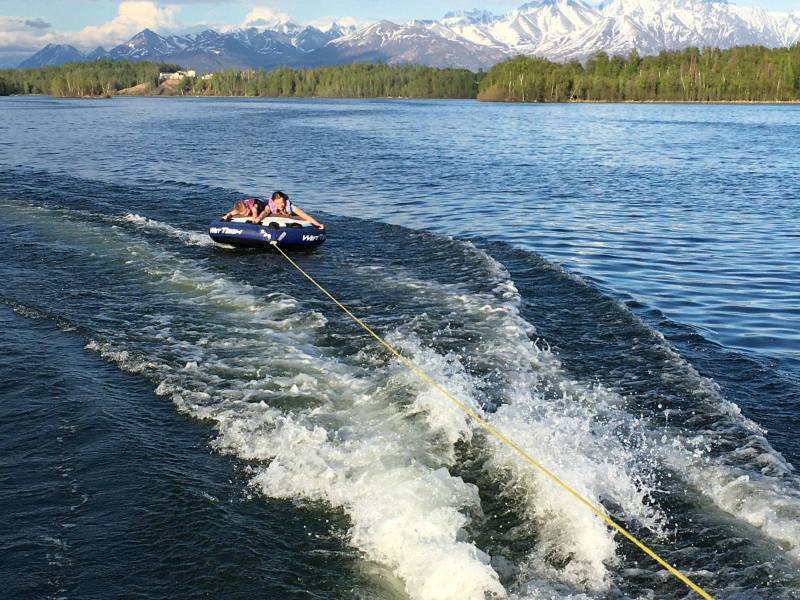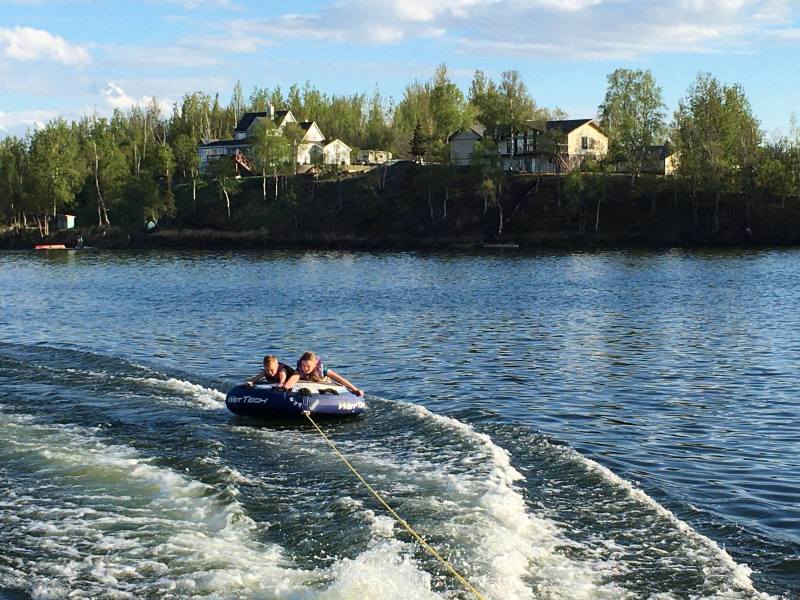-
Posts
17,496 -
Joined
-
Last visited
-
Days Won
52
Content Type
Profiles
Forums
Events
Everything posted by AKIQPilot
-
-
I Wish I Could Do Something For You,' My Doctor Said
AKIQPilot replied to Mainecat's topic in Current Events
A friends grandfather died here last week. He was the 10th covid related death in Alaska. He was 90 and had stage 4 lung cancer. He had been given less than 6 months to live over a year ago. Still only 10 CV related deaths in AK. -
Thank god..........
-
Complete shit weather since October and now this. What a shithole.
-
Said the same thing a month ago and again when we flew home 3 weeks ago. My personals were fondled by 3 different people who touched hundreds of people per day that day. Lots of people are passing this virus without evening knowing it.
-
I Wish I Could Do Something For You,' My Doctor Said
AKIQPilot replied to Mainecat's topic in Current Events
What clown are you talking about? -
I Wish I Could Do Something For You,' My Doctor Said
AKIQPilot replied to Mainecat's topic in Current Events
A great survival story. Glad she's beating it. Being young and healthy saved her life. I really like her advice about the Oximeter. Why aren't we getting that kind of info from the worlds healthcare experts? -
Updated at 9:00 a.m. ET Michelle Sweeney could barely sleep. The nurse in Plymouth, Mass., had just learned she would be furloughed. She only had four hours the next day to call all of her patients. "I was in a panic state. I was sick over it," Sweeney said. "Our patients are the frailest, sickest group." Sweeney works for Atrius Health as a case manager for patients with chronic health conditions and those who have been discharged from the hospital or emergency room. "It's very devaluing, like a slap in the face," Sweeney said. "Nursing is who you are ... I've never been unemployed my entire life." It's an ironic twist as the coronavirus pandemic sweeps the nation: The very workers tasked with treating those afflicted with the virus are losing work in droves. Emergency room visits are down. Non-urgent surgical procedures have largely been put on hold. Health care spending fell 18% in the first three months of the year. And 1.4 million health care workers lost their jobs in April, a sharp increase from the 42,000 reported in March, according to the Labor Department. Nearly 135,000 of the April losses were in hospitals. Subscribe to the Coronavirus Daily Podcast NPR ONE APPLE PODCASTS GOOGLE PODCASTS POCKET CASTS SPOTIFY RSS Fae-Marie Donathan was among those who filed for unemployment in April. A nurse for 42 years, she worked until recently as a per diem nurse in the Surgical ICU at the University of Cincinnati Medical Center. As the pandemic took hold in the U.S., Donathan, 64, expected her skills to be essential, but was recently told she would no longer be scheduled. "I was thinking maybe I would have to worry about when I was going to get a day off," Donathan says. "I was thinking totally the opposite, never ever suspecting that I would be sitting at home not getting any hours at work." Donathan says she normally makes around $1,100 every two weeks; she says her last paycheck was $46 in take-home pay. Asked for comment, a spokesperson for the University of Cincinnati Medical Center said in an email that the health system, "like many others, has experienced financial challenges as a result of the pandemic and has taken steps to align staffing with current needs as we seek to avoid layoffs." The University of Cincinnati Medical Center is among many: The American Hospital Association recently predicted that U.S. hospitals and health systems would end up taking a $200 billion hit over a four-month period through June. Most of that money — $160 billion — is from lost revenue from more lucrative elective procedures. "The only people who are coming into the hospitals are COVID-19 patients and emergencies," says American Hospital Association Executive Vice President Tom Nickels. "All of the so-called elective surgery, hips and knees and cardiac, etcetera, are no longer being done in most institutions around the country." Nickels says hospitals are in a tight spot: "They're still having to have their institutions open. They are still caring for people who come in. They are still taking care of COVID-19. But that's an enormous amount of lost revenue." The revenue losses will more severely affect poorer and more rural hospitals whose finances may be marginal in the best of times, Nickels says. "That is certainly an existential threat," he says. "And I think [it] will threaten the ability of some of these hospitals to remain open." Some nurses have traveled across the country to hot spots like New York City to find work, unsure if they'll have a job when they return home. But even there, hospitals that were once swamped are finally coming up for air and administrators are now reckoning with the financial impact of the pandemic. President Trump listens as Rick Pollack, president and CEO of American Hospital Association speaks about the coronavirus in the Rose Garden of the White House on April 14. Hospitals have faced lost revenue due to cancelled elective procedures during the pandemic. Alex Brandon/AP Rozetta Ludwigsen, 64, works at a small hospital in Anacortes, Wash. She's gone from working a 40-hour week to only a few days a month. "I never thought we'd be in this situation where there'd be no work for us," she said. Before the pandemic, Ludwigsen was hoping to retire within the coming year. Now she may have to delay her plans for a year or longer. In eastern Washington state, Shawn Reed, an ER nurse at MultiCare Valley Hospital, said she is sacrificing her own hours for people who need the money more. "When I look at a nurse ... who's pregnant with her third child and I know she's going to need hours now, I am willing to fall on that sword," Reed said. "I can do it here and there, but I certainly can't do it long term." The Emergency Nurses Association (ENA) has created a relief fund for its members who are struggling financially. Hundreds of their members have already applied for help. "Looking at it from a long-term perspective, you have to worry about the profession and what's the impact on the profession," said Mike Hastings, the president of ENA. A question of funding The federal government has been distributing a portion of the $100 billion Provider Relief Fund to hospitals and other providers, as part of the Coronavirus Aid, Relief and Economic Security (CARES) Act. Among the funding is a $10 billion allocation each for rural hospitals and pandemic hot spots. Nickels, of the AHA, says it's too early to tell the effect of emergency federal funding targeted for hospitals, and whether those funds will help hospitals retain workers. But Randi Weingarten, president of the American Federation of Teachers, which is also the nation's second-largest nurses' union, says it's clear the federal funding is far from enough. The union has identified at least 200 hospitals nationwide cutting worker hours, mostly in the form of furloughs, according to Weingarten. Even as the pandemic tapers off in some places, hospital revenue losses will take time to correct, especially because hospitals may face a potential "payer mix" problem before Americans go back to work. Many people who lose their jobs will also lose employer-sponsored health insurance, and those private plans reimburse providers at much higher rates than publicly funded plans like Medicaid and Medicare. Randi Weingarten, President of the American Federation of Teachers, the second largest nurses' union, listens during a town hall meeting in Detroit on May 6, 2019. Weingarten says her union has identified at least 200 hospitals that have cut worker hours amid the pandemic. Paul Sancya/AP The Economic Policy Institute estimates that nearly 13 million Americans have likely lost their employer-sponsored health insurance so far. "Even if [patients] do go back to the hospital, they'll be paying a lot lower rate than they did when they had insurance through their employer," says Christopher Whaley, a policy researcher with the Rand Corporation. Weingarten says this crisis is an opportunity to rethink how the American hospital system is funded. "This particular issue about what do we do in terms of funding our hospitals is not an issue in Canada. It's not an issue in Great Britain," she says. "It's not an issue where there are better funding systems." But short of reworking the entire finance system of American health care, Weingarten says individual hospitals could also make changes to avoid cutting hours. "Instead of reduction of the workforce, there should be a reallocation of work," she says. "Thinking innovatively and resourcefully, health care workers should be cross-trained to work in areas of the hospital that are overloaded like ER or ICU. Displaced workers could be trained and paid to staff a robust trace-and-isolate program as society reopens." "Where's the end?" Without that reallocation, some nurses still in the hospitals are taking on extra tasks in their already grueling 12-hour shifts. They're mopping rooms, changing sheets, taking out the trash and arranging rides because the people who once did that are gone. "We're kind of jack-of-all-trades at this point," said Amy Erb, a nurse at California Pacific Medical Center in the Bay Area in northern California and a California Nurses Association Board member. "We're being phlebotomists, drawing labs. We're being social workers. We're being psychologists." Then there are the days she's had her hours cut, which makes her worry about the future. So far her hospital has worked to avoid layoffs. One nurse in a Detroit-area hospital says all the extra hours she once worked have disappeared. "Our job title expanded exponentially," she said. She spoke on the condition of anonymity for fear of losing her job. The one thing she thought she had was job security. "Then the layoffs started coming and I was like 'never mind.' " She now often cleans the rooms and answers phones because the staff who did that are gone. The financial stresses are compounded by an already stressful and terrifying time for healthcare workers. "People were dying left and right," she said. "The way we were treating them then is different than now, maybe they would still be alive if they came in today ... it eats me up at night." She spent the first month of the pandemic crying every night. Her unit is a COVID-19 positive unit. Things are easing up now, but she still works with those COVID-19 patients every day. She's less afraid, she spends more time in the patient's rooms. She is their support system, their link to their families and their nurse. Last week, Palomar Health in north San Diego County in California eliminated over 300 positions. But the workload didn't change — it just shifted to people like Sue Phillips, a critical care trauma and rapid response nurse. "We have very limited physical therapy, speech therapy, occupational therapy and that's part of our care team, so that's now going to fall onto our end to be providing that care," she said. "It's uncharted territory. In my 25 years of nursing, I've never seen anything like this before." When a patient came in recently with broken bones, the doctor couldn't turn to the orthopedic technicians. Those technicians had been laid off. So Phillips found herself putting traction on a hospital bed, a pulley system that slowly lifts and moves the broken body parts. "I've never had to do that before," she said. "The operating room staff was bare-boned staff, so there weren't enough people to assist the physician in doing the surgery that day." She said she was worried she'd make a mistake. Also gone is the lift team that used to help Phillips pick up and turn patients. All of this, she said, adds stress to her job. Meanwhile, her family is afraid to be around her because of her work. She's staying away from her husband. On their 30th wedding anniversary Friday, they'll celebrate apart. Phillips is tired. "We've been doing this now for six weeks. Where's the end? When are things going to get a little bit back to normal?" she asked. "Now we've had these huge layoffs."
-
This thread will be ignored by many. Very unfortunate.
-
Insulating the perimeter of the foundation is a good idea IMO.
-
That is likely some of it no doubt.
-
I see. Good stuff to know. The new room is looking good for sure. The red oak will go over taped drywall? How will you fasten the oak to the ceiling and walls?
-
Looking good Ben. Does urethane insulation require a vapor barrier just under the drywall there. It didnt here for a long time but the rules were changed back in the ‘80’s and now a vapor barrier is required.
-
Many of the “I know who you are” support this pedo
AKIQPilot replied to jtssrx's topic in Current Events
-
What about me?
-
I say stupid shit all the time in here. Sometimes its edgy but most times its just stupid. I barely take myself seriously around here much less anyone else. I would like to think we are all friends to some degree and all hoping our fellow forum friends succeed in life. This place is a fun pastime for me. I dont always like how I respond but For the most parts its fun to browse a little here and there.
-
Ive been drinking Guinness since the 70’s. The taste has changed. I still like it but I feel it has changed. Maybe its just my exposure to better beers that makes me think it changed.
-
Thats exactly what Guinness tastes like. Back in the 70’s it still had somewhat of a crisp dark taste. Sometime in the late 80’s the crispness went away and it tastes stale now. Tastes the same from the keg or bottle. Guinness was very popular here in the 70’s and early 80’s. Everyone then moved on to local brewery stuff. South Central has a few dozen local breweries. They all make some fantastic beer.
-
Right but which side would Amish actually take votes from. Seems to me the only people willing to vote for Biden are the anti-Trumpers. Would anti-Trumpers magically vote for Amish if it meant Trump might win again? I sure don't think so.






